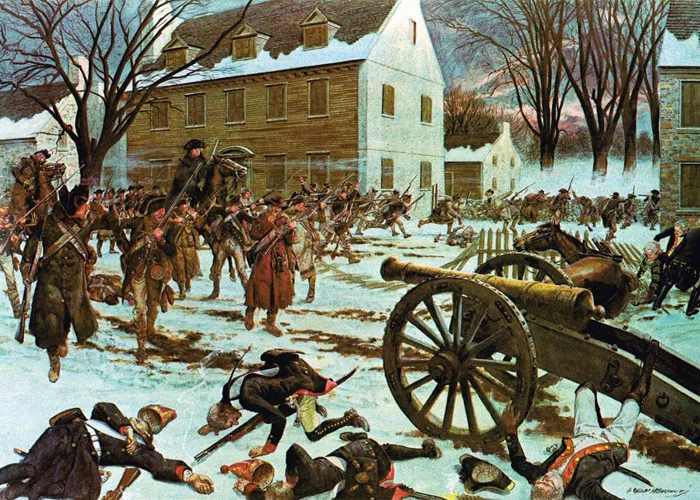January 3 has been a significant date in British history, witnessing various notable events across different centuries. This article explores these events in detail, providing context and implications for each occurrence.
What Happened on January 3 in British History?
1. The Battle of Princeton (1777)
On January 3, 1777, during the American Revolutionary War, General George Washington achieved a pivotal victory at the Battle of Princeton, New Jersey. This battle was part of a series of engagements that marked the turning point in the war for American independence. Following his success at the Battle of Trenton just days earlier, Washington’s forces faced off against British troops led by General Charles Cornwallis.
The American Revolution was a conflict between Great Britain and thirteen of its North American colonies which declared independence as the United States of America.
Washington’s strategy involved surprise attacks and rapid movements, which were crucial for maintaining morale among his troops.
The victory at Princeton not only bolstered American morale but also encouraged more enlistments into the Continental Army, which was crucial for sustaining the fight against British forces.
The battle itself was characterized by fierce fighting and strategic maneuvering. Washington’s troops managed to outflank Cornwallis’s forces, leading to a retreat by the British. This victory was instrumental in shifting the momentum of the war in favor of the Americans and is often regarded as one of Washington’s greatest achievements.
2. Death of Josiah Wedgwood (1795)
On January 3, 1795, Josiah Wedgwood, an influential English potter and entrepreneur, passed away. He was renowned for his contributions to pottery and is celebrated as one of the pioneers of industrial manufacturing techniques.
Wedgwood founded the Wedgwood company, which became synonymous with high-quality ceramics and innovative design.
His work not only influenced pottery but also played a significant role in the development of marketing strategies that are still used today.
He was a key figure in the Industrial Revolution, showcasing how craftsmanship could be combined with mass production.
Wedgwood’s legacy continues through his innovative designs and business practices that laid the groundwork for future generations in both pottery and manufacturing.
3. Discovery of Tutankhamun’s Tomb (1924)
On January 3, 1924, British archaeologist Howard Carter discovered the sarcophagus of Tutankhamun in the Valley of the Kings near Luxor, Egypt. This discovery is one of the most significant archaeological finds in history.
Tutankhamun was an Egyptian pharaoh who ruled during the 18th dynasty. His tomb remained largely intact until Carter’s discovery.
The treasures found within the tomb provided invaluable insights into ancient Egyptian culture, burial practices, and art.
This event sparked worldwide interest in Egyptology and influenced popular culture significantly.
Carter’s meticulous excavation methods and documentation set new standards for archaeological practice. The treasures from Tutankhamun’s tomb continue to be displayed in museums around the world, captivating audiences with their historical significance.
4. Execution of William Joyce (1946)
On January 3, 1946, William Joyce, known as “Lord Haw Haw,” was executed for treason in London. Joyce had gained notoriety during World War II for broadcasting Nazi propaganda to Britain from Germany.
Joyce’s broadcasts were aimed at demoralizing British troops and civilians during a time of war.
His trial highlighted issues surrounding treason laws and wartime propaganda.
The execution underscored Britain’s commitment to justice following the war and served as a warning against collaboration with enemy forces.
Joyce’s case remains a significant example of how governments address treasonous acts during wartime and reflects broader themes of loyalty and betrayal during conflict.
5. Alaska Becomes a U.S. State (1959)
While not directly related to British history, it is worth noting that on January 3, 1959, Alaska was admitted as the 49th state of the United States. This event had implications for British interests in North America.
Alaska’s admission followed its purchase from Russia by the United States in 1867.
The strategic location of Alaska has historically been important for both military and economic reasons.
British Columbia’s proximity to Alaska means that developments in Alaska can have direct impacts on Canadian provinces.
This event is part of a larger narrative concerning territorial expansion and geopolitical dynamics in North America.
Conclusion
January 3 has witnessed numerous pivotal moments throughout British history. From military victories during wars for independence to significant cultural discoveries and legal ramifications regarding treasonous acts, each event reflects broader themes within British history. These occurrences not only shaped national identity but also influenced international relations and cultural heritage. By examining these events in detail, we gain a deeper understanding of their significance within both historical context and contemporary relevance.This exploration serves as a reminder that history is not merely a collection of dates but a complex tapestry woven from human experiences across time.
Related Topics:

